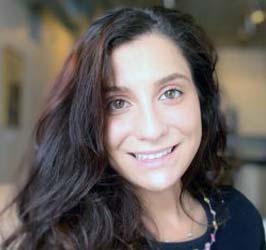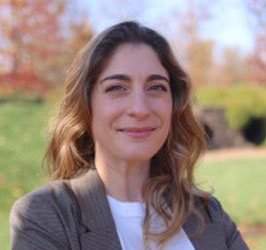The Safar Center is host to a variety of research programs targeting brain injury from the field to rehabilitation
As a multidisciplinary research facility, the Safar Center is host to a variety of research programs targeting brain injury from the field to rehabilitation. Many of these programs involve long running collaborations between departments. Our programs span the spectrum of ages from infants to adults and include Traumatic Brain Injury, Abusive Head Trauma, Cardiac Arrest, Emergency Preservation and Resuscitation, Hemorrhagic Shock, and Combat Casualty Care, and Rehabilitation of CNS Injury. Center investigators work closely with the clinical depts. of Critical Care Medicine, Surgery, Neurological Surgery, Anesthesiology, Emergency Medicine, and Physical Medicine and Rehabilitation at both the University of Pittsburgh Medical Center and Children’s Hospital of Pittsburgh of UPMC. In addition to basic research, the Safar Center also provides training to the next generation of resuscitation researchers. A few of our special programs are featured below.

T32
The Pediatric Neurointensive Care and Resuscitation Research Fellowship
OBTT
Operation Brain Trauma Therapy
T32
The Pediatric Neurointensive Care and Resuscitation Research Fellowship
The Pediatric Neurointensive Care and Resuscitation Research fellowship is one of the few T-32 fellowship programs in the field of Pediatric Critical Care Medicine. Drs. Patrick Kochanek and Robert Clark are the Principal Investigators and the Program Directors of this training grant opportunity (5T32HD040686) that is funded by the National Institutes of Health, Eunice Kennedy Shriver National Institute for Child Health and Human Development (NICHD). The T-32 program is designed to advance the research training of two new postdoctoral fellows each year for a two or three-year term. Trainees (either an MD or PhD, or MD, PhD) work and train on clinical, translational, or basic science research relevant to the fields of Pediatric neurointensive care and resuscitation –in the broadest sense. Trainees are mentored by an outstanding faculty of senior scientists at the Safar Center for Resuscitation Research and other laboratories in the University of Pittsburgh School of Medicine, Pharmacy, and Public Health, among others. The research focus is on injury mechanisms, novel diagnostics and therapeutics, and outcomes, predominantly in the areas of traumatic brain injury, cardiac arrest, and neurocritical care. The opportunities and faculty address key issues in resuscitation medicine in infants and children from the field through the emergency department, intensive care unit, and on to rehabilitation and long-term outcome. The T-32 program supports trainees from fields as diverse as pediatric critical care medicine, emergency medicine, neurological surgery, physical medicine and rehabilitation, child neurology, neonatology, and radiology. Many of these trainees also receive advanced degrees such as a Master’s of Clinical Research, Health Administration, Medical Education, Health Informatics, or Intelligent Systems, among others. The over 40 program alumni have gone on to publish major findings, win multiple awards, garner NIH or other National funding as independent investigators, and to become academic leaders in their respective fields. Many of the trainees achieved careers of National prominence.
NIH-Funded Research Positions in Pediatric Neurointensive Care and Resuscitation Research
Children’s Hospital of Pittsburgh and the Safar Center for Resuscitation Research, University of Pittsburgh School of Medicine. Two-year research fellowship positions focused on career development in the area of pediatric neurointensive care are anticipated for physicians who have completed at least two years of clinical fellowship training in pediatric critical care medicine.
Safar Center Current Fellows
Safar Center T32 Fellow Dr. Eleni Moschonas
Dr. Eleni Moschonas is a T32 postdoctoral fellow in the lab of Dr. Shaun Carlson at the University of Pittsburgh, where she investigates synaptic vulnerability and circuit-level disruptions following experimental traumatic brain injury (TBI).
Safar Center T32 Fellow Sarah Svirsky, PhD
Sarah Svirsky, PhD received her bachelor’s degree in Neuroscience from Barnard College and her PhD in Neurobiology from the Center for Neuroscience at the University of Pittsburgh.
Safar Center T32 Fellow Amanda Dave, MD, MS
Amanda Dave, MD completed a Pediatric residency at the University of Nebraska and is a pediatric critical care medicine fellow at UPMC Children’s Hospital Pittsburgh.


Operation Brain Trauma Therapy (OBTT) is a multisite research consortium composed of investigators from several internationally recognized research centers that was created in 2011 to respond to the need for novel therapies and biomarkers in traumatic brain injury (TBI). OBTT was designed to serve as a high-throughput therapy screening research consortium that identifies the most promising therapies and compares them across a spectrum of the state-of-the-art models and injury levels. The most promising therapies are moved up the phylogenetic scale. OBTT then recommends agents that are either U.S. Food and Drug Administration (FDA) approved for other uses, or are in clinical development that are found to be effective across models for rapid clinical translation to the US Army. OBTT is structured to allow a direct comparison of therapies across TBI models in multiple centers. It also includes a comparison of therapies across highly relevant combat casualty care scenarios. OBTT is supported by the United States Army grant W81XWH-10-1-0623. OBTT is composed of the seven sites below.
The Safar Center for Resuscitation Research
University of Pittsburgh School of Medicine
• • • • •
Patrick Kochanek, MD, MCCM
Over All Primary Investigator
C. Edward Dixon, PhD
Co-Director and Site Primary Investigator
The Miami Project to Cure Paralysis
University of Miami School of Medicine
• • • • •
W. Dalton Dietrich, PhD
Site Primary Investigator
Helen Bramlett, PhD
The Neuroprotection Program
Walter Reed Army Institute of Research
• • • • •
Frank Tortella, MD
Site Primary Investigator
Deborah Shear, PhD
Janice Gilsdorf, MD
Virginia Commonwealth University
• • • • •
John Povlishock, PhD
Site Primary Investigator
Audrey Lafrenaye, PhD
Banyon Biomarkers Inc.
Alachua, Florida
• • • • •
Ronald Hayes, PhD
Biomarker Core Director
Center for Neroproteomics & Biomarkers Research
University of Florida
• • • • •
Kevin K.W. Wang, PhD
University of Messina
Messina, Italy
• • • • •
Stefania Mondello, MD, PhD, MPH
The Safar Center for Resuscitation Research
University of Pittsburgh School of Medicine
• • • • •
Patrick Kochanek, MD
Over All Primary Investigator
C. Edward Dixon, PhD
Co-Director and Site Primary Investigator
The Miami Project to Cure Paralysis
University of Miami School of Medicine
• • • • •
Dalton Deitrich, PhD
Site Primary Investigator
Helen Bramlett, PhD
The Neuroprotection Program
Walter Reed Army Institute of Research
• • • • •
Frank Tortella,MD
Site Primary Investigator
Deborah Shear,PhD
MAJ. Kara Schmid, PhD
Virginia Commonwealth University
• • • • •
John Povilshock, PhD
Site Primary Investigator
Banyon Biomarkers Inc.
Alachua, Florida
• • • • •
Ronald Hayes, PhD
Biomarker Core Director
Center for Neroproteomics & Biomarkers Research
University of Florida
• • • • •
Kevin K.W. Wang, PhD



